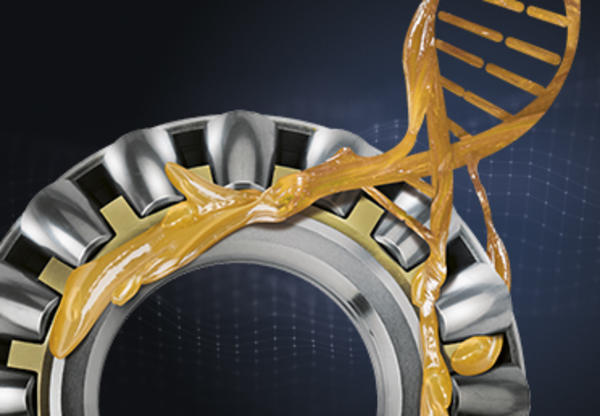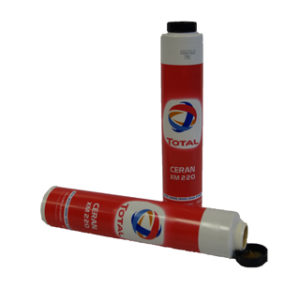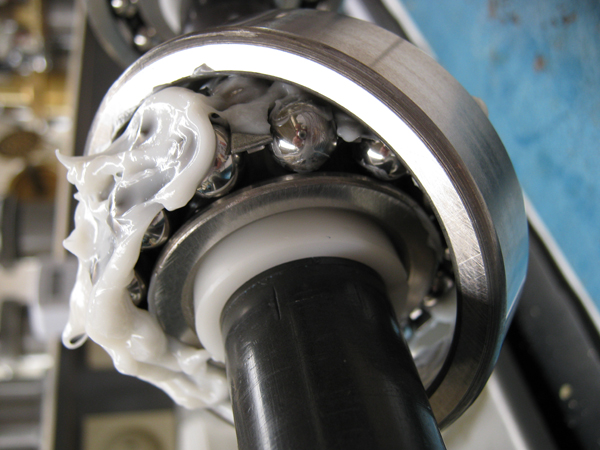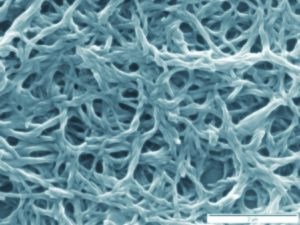Which Option is the Best for Your Industry?
Selecting the best grease for a job requires narrowing down your choices by understanding what’s going to perform the best for your application. Not all application requirements are the same, and not all greases are suitable for every situation. By far the two most popular choices are lithium complex and calcium sulfonate grease (which we briefly spoke about). So, which option is going to best for your application?
To find this out, we must understand how the grease works in the respective applications and what features are needed to ensure the best possible performance. The inherent issues that machinery may face, for example, high temperature or high-water exposure, indicates what specific grease type may be needed to overcome them.
So, depending on the requirements, it is crucial to identify:
- Which works best at higher temperatures?
- Which won’t break down from water washout?
- Which one responds best to extreme pressure?
- Which is a combination of all of these, or even something else?
Once you have a good idea of what strengths you will then need to find out what grease can replicate these strengths.
For example, how do you know whether a lithium complex grease is or is not going to be better than a calcium sulfonate grease in a high-temperature environment? Or how a lithium complex performs under extreme pressure at high operating levels. Luckily for equipment operators, this information is readily available.
Let’s look at a couple of important characteristics that may help you decide between a lithium complex and a calcium sulfonate grease, the two most popular multi-purpose options available on the market today.

High-Temperature Characteristics
High-temperature characteristics get measured by dropping point and high-temperature life tests (dropping point is the most common measurement that you see). Dropping point is defined as the temperature at which the grease passes from a semi-solid state to a liquid state or the temperature at which it begins to “drip” and specifies the temperature limit at which a grease retains its semi-solid structure.
It is NOT the maximum temperature at which grease may be used (which is always lower). The upper operating limit for grease is typically recommended to be 35°C – 65°C lower than the dropping point.
For a grease to change its density, one factor that must occur is the degradation of the soap matrix. This degradation indicates the type of thickeners used to make the grease, which in turn dictates how high its dropping point is. Many greases are made with these kinds of thickeners with some of these superior to others when it comes to holding up at higher temperatures.
Sometimes you may see two grease products that at first seem quite alike – calcium vs calcium complex or lithium vs lithium complex. In reality, these soaps are very different from each other; the first of each pairing gets produced from what is known as a “simple soap.” These soaps take a fatty acid and react it with a metal hydroxide (in this case, calcium hydroxide), to form a calcium soap that is then used to make the grease.
However, if they follow the method of creating calcium hydroxide and then add in an additional “short-chain organic complexing acid” you get a calcium-complex soap. Greases made from these soap complexes have far greater high-temperature properties.
When comparing our two multi-purpose grease types (lithium complex and calcium sulfonate), calcium greases tend to perform a little bit better in the Dropping Point test, again due to their soap complex formulation. Regular lithium grease drops at about 177°C. Lithium complex increases that temperature threshold to 260°C. However, calcium sulfonate greases can improve this even further, approaching 315°C.
The extra degrees in dropping point for calcium sulfonate greases means an additional 37°C degrees in the operating temperature range, which is a real advantage for many industrial applications.

Shear and Mechanical Stability
Shear stability is one of the essential characteristics of any grease and highlights the resistance to a change in viscosity. Grease must uphold its consistency under potentially high shear conditions for as much time as possible to provide the best results.
The ASTM D217 test is used to measure how the grease’s thickness may change over time (performance level). The analysis is carried out by analysing how samples perform over a period of testing (e.g., working for 60 strokes and rising to 100,000 strokes). This allows for the measuring of the thickness of the grease at each point to see how it may change. The smaller the change in number, the better the shear stability exhibited. A grease that would be considered more stable thins out less over time when exposed to long-term stress.
If we look at a lithium complex grease, a regular score on this test would be approximately 30. If it is a Grade 2 grease, it may have begun with a thickness score of about 280 (middle range for a Grade 2 grease). Upon reaching 100,000 strokes, the score may be 310 (an increase of 30), which is just barely at the beginning range for Grade 1. So, the grease changed from a mid-grade 2 to a thick Grade 1. That’s acceptable, if not ideal.
For calcium sulfonate grease, it can be quite common for their scores to change by less than 20 units. If we are to look at a 280 Grade 2 grease, it may only change to a score of about 295 or 300 instead of 310 in a lithium complex grease. Calcium sulfonate shows greater shear stability than lithium complex greases meaning they hold up under pressure better for a greater length of time.

Oxidative Stability or Oxidation Loss
We know that for every rise in temperature above 93C -120°C we see the oxidation rate of grease increase. Many types of application requirements apply constant temperatures higher than that. If grease can’t fight back against oxidation, it hardens and cake’s premature, destroying the base oil and deactivating its anti-wear properties. High-quality products display superior oxidative stability, as documented on oxidation tests.
The test is run by exposing a grease sample to a given pounds per square inch (psi) of oxygen in a sealed chamber for a controlled amount of time. If it oxidises, the grease and the oxygen react, using some of the oxygen up and causing the pressure to drop. The lower the change in pressure, the less the grease reacted with the oxygen and the better the performance.
We’ve seen many lithium-complex greases score on average around a 10.0 psi drop after 500 hours of exposure on the test.
On the other hand, there are calcium sulfonate greases that can go twice as long (1000 hours) and only approach an 8.0 psi loss which is preferable
Compatibility
In its most basic term, grease is heavy oil that is mixed with enough soap (the product of an acid + base) to make it stringy and clingy and stay in place when applied to areas such as bearings or high-speed moving parts.
But, unfortunately, not all soaps are compatible with each other. As such, this fact is essential when introducing a grease to an area that has been greased before and may have remnants of the old application still in place. If an incompatible grease type becomes introduced, there is an interaction that results in the soap and oil separating, causing the oil to leak out. As a result, bad things can happen.
This interaction is a big issue for elements such as bearing packs. If an incompatible grease becomes added, oil can leak out of the bearing pack at a potentially fast pace depending on the use of the machine.
Lithium complex and calcium sulfonate grease both have the advantage of being compatible with each other and many other types of conventional grease lubricants. The only classes that are incompatible with a lithium complex and calcium sulfonate grease are traditional polyurea-based grease and bentonite clay grease. Calcium sulfonate is also incompatible with calcium complex grease.
After looking at all this information, what do we learn from the comparison of lithium complex and calcium sulfonate multi-purpose greases? We find that although these are great options when it comes to multi-purpose greases, calcium sulfonate greases tend to display better performance in three significant areas:
- Dropping point
- Shear stability
- Oxidative resistance
What this means is that you can use calcium sulfonate greases at higher operating temperatures while they also hold up better against stress for more extended periods of time in comparison to the more popular lithium complex greases.

Conclusion
Grease is a vital lubricant used in a host of applications, from electric motor bearings to open gears, wheel bearings to CV joints and even agricultural and construction industries. Such applications can see the machinery operating in extreme heat and dust environments, in the middle of a quarry or sub-zero temperatures like a freezer or even on a fishing trawler in the Atlantic Ocean.
Just as there are many applications, conditions and environments, there are also as many different types of grease and brands. To choose the right product you need to consider all the requirements. Ideally, discuss these factors with a lubricant expert to help you determine which grease you need. To find out more about this integral lubricant, you can read our other editions of Grease 101 or talk to our highly skilled technical team at 01-455 5484.

